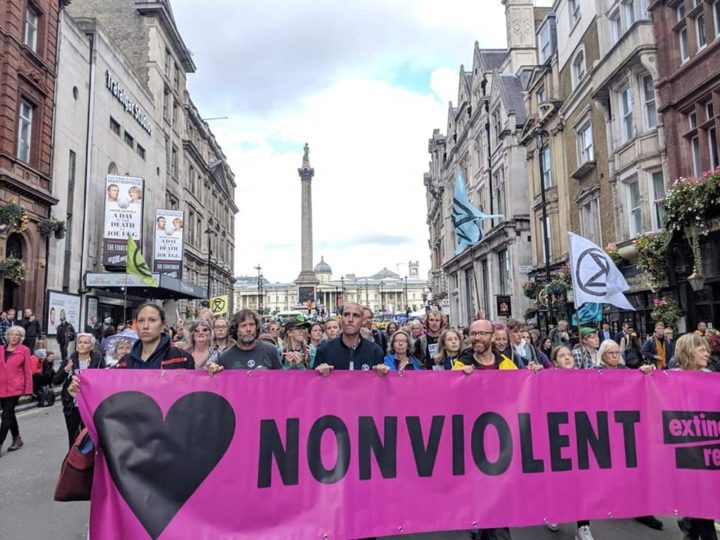Nonviolence seems distant and agonizing in a historical situation where only Pope Francis makes appeals for peace.
The war that we are most concerned about at this moment in history is the one being fought in Ukraine; by now the peace negotiations have been shelved to a time to be determined, to a vague tomorrow where, by the time the situation is taken in hand, everything will have been destroyed and many more human beings will have died under the bombs.
Nonviolence seems to have become an empty word and this cannot, must not, be accepted. Powerful tanks are about to begin their journey to Ukraine where it will take months of training to deploy them, so the war is far from over. Some fear the widening of the conflict, a concern that can be shared, a fear that has yielded to the demands of the Ukrainian president. His needs have now gone as far as the explicit call to be sent weapons no longer for counterattack but for attack, a clear signal that this is no longer just about defense.
I do not point the finger at the contenders, I do not want to be on the side of one or the other, but I must point out the “amnesia” of those who forget history and the wars that have bloodied it, here on our own peaceful continent. The much acclaimed dialogue is not being put into practice; I know well that Russia started this war, but I know equally and very well that only real peace treaties can prevent a dangerous and deadly escalation.
Socrates taught us that if we accept war we turn our backs on what our nature can give us with tools to avoid the worst. And, the philosopher continues [by saying that] if some wars are justifiable, we are solely responsible for our choices. Five centuries before Christ, it was already clear to a philosophically enlightened human being how much war was a choice, and it is important to reflect on this. What does it mean to choose? First of all we must remember that it is a fundamental passage of existence, a formative passage capable of making us responsible for our actions and free. Yes, choice is linked to freedom; if we can choose it means that we are free to do so, and if we do not enact the right choice we are responsible for it. Staying out of the Christian conception of free will in which divine intervention also enters and takes us into a transcendent dimension, we instead remain with our feet in the immanent and loudly criticize those who use and sponsor war.
But why do we still resort to weapons? As many say, war is a way to earn money, lots of money, and the lust for power along with the lust for wealth prevents peace and nonviolence from becoming the best choice. One can choose to seek peace or to enhance war; the tools for a peaceful solution are there [and] it would be enough as a first step to stop making excuses. If I insist on accusing my contender, even justifiably, I will not land on anything good.
War, as Gandhi said, is a crime against humanity; nonviolence is the only way to peace-I will never tire of stating this in an optimistic vision of the world born of philosophy.
As I have already pointed out in my other article, war is also an anti-ecological practice; it destroys life and the environment and pollutes the seas; think of the bombs dropped in our Adriatic Sea during the Balkan War, ordnance that lingers on the seabed for who knows how many hundreds of years. Bombs pollute, undermine health and life itself. And what about the immense consumption of fuel, because tanks and missiles do not move by inertia; where does all the green vision go? In an ecological vision that goes beyond nature and the environment, war is also anti-ecological in the most abstract and mind-bound meaning: we are all connected as beings-in-the-world. Our bad actions affect the whole system, the whole union of body and mind of all human beings. That is why nonviolence is the only possible way not to succumb, not to make the world a death trap but a garden of rebirth.






